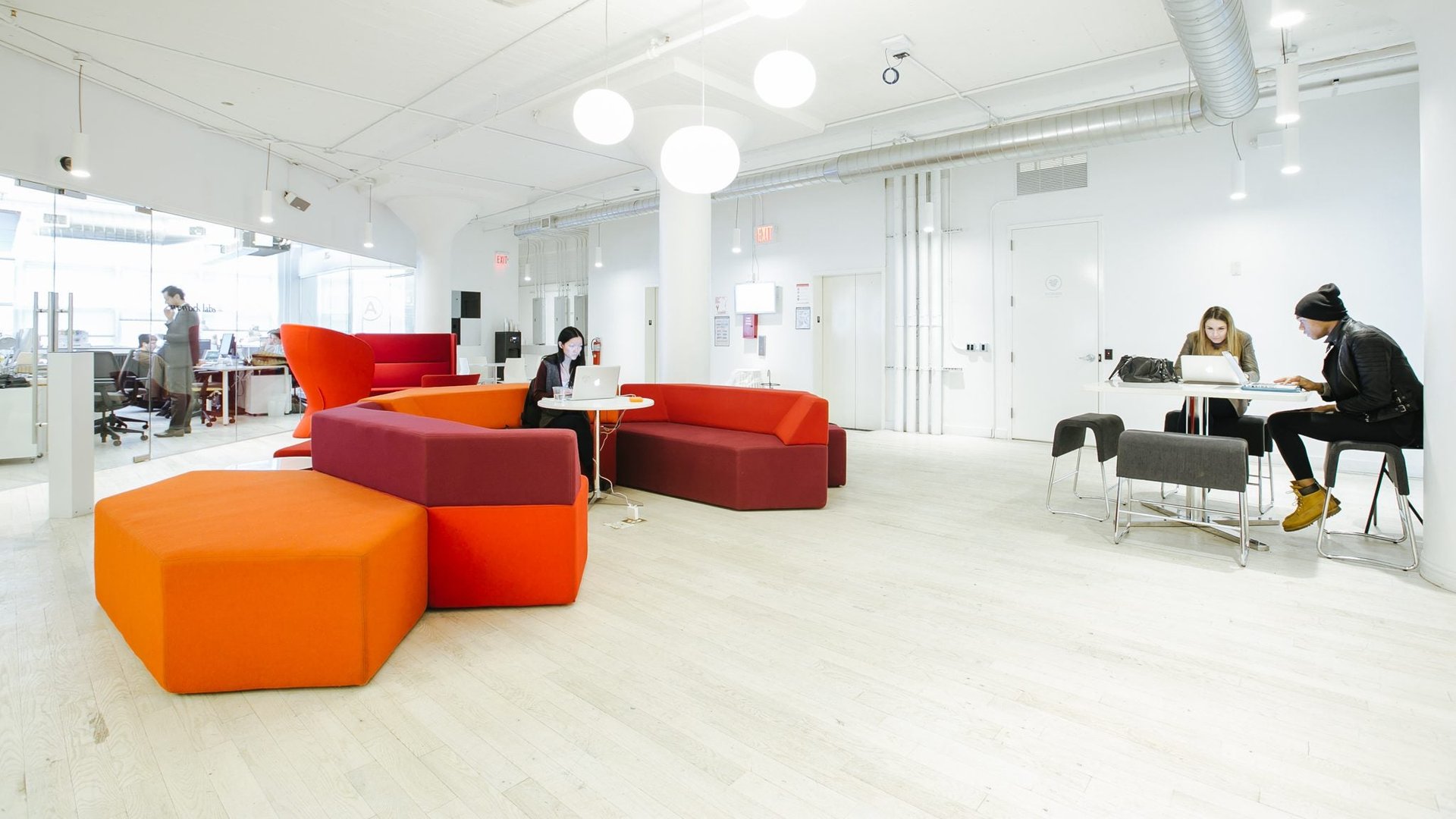WeWork is testing how much people will pay to live in its experimental co-living space on Wall Street
WeLive, the co-living business operated by WeWork, is raising the list price of a studio apartment in its furnished complex in Manhattan’s Financial District to $3,050 a month. The same unit was listed at $2,800 when WeLive put the building on the market in April, but no one was actually paying that. WeLive allowed its earliest occupants to move in under a “friends and family” arrangement that discounted rents by 15% to 20%, making a studio as cheap as $2,240.


WeLive, the co-living business operated by WeWork, is raising the list price of a studio apartment in its furnished complex in Manhattan’s Financial District to $3,050 a month. The same unit was listed at $2,800 when WeLive put the building on the market in April, but no one was actually paying that. WeLive allowed its earliest occupants to move in under a “friends and family” arrangement that discounted rents by 15% to 20%, making a studio as cheap as $2,240.
Such deals persisted for several months, but they became less generous as rooms filled. Over the summer, WeLive lowered its discount on studios to 10%, or $2,520, and offered it only to people who agreed to stay for a year or more. By November, the company said options for a discount were “limited,” with almost all incoming studio residents paying $2,800 a month. Rents for other units have also increased to match the prices WeLive advertises. Four-bedroom apartments that cost about $6,000 a month for early occupants now start at $8,000.
The promotional rates were designed to draw people into the first WeLive, a bet by $16 billion startup WeWork that people will pay a premium to live month-to-month in residential buildings that are essentially glorified dorms. Amenities at WeLive include communal kitchens stocked with dishes and cooking utensils, high-speed internet, TVs wired for cable, and rooms elegantly furnished with Murphy beds. The company has touted shared living as the future, especially for busy professionals who want a ready-made community.
“We believe you’re opening yourself up to a more enriching experience, so the value proposition has to be in that potential of being around interesting people and the opportunities that that will lead to,” WeWork co-founder Miguel McKelvey told Quartz in May. “It’s definitely not apples to apples in terms of square footage or even amenities.”
Six months later and as prices climb at WeLive in Manhattan, it’s unclear whether that value proposition is resonating. WeWork says all 200 units in its Wall Street location are occupied and enough people are on the waiting list to fill another 100 units. ”We’re incredibly pleased with the performance of WeLive,” a WeWork spokesman said in a statement. “The test period for the building is coming to an end; the pricing now reflects market rates.”
But the business has faltered in other respects. WeLive opened only two locations this year—the second is in Crystal City, Virginia—despite having told investors in 2014 that it would have 14 co-living residences up and running by the end of 2016. WeWork was valued at $16 billion in March with an eye on expansion in Asia, but soon afterward slashed its 2016 profit forecast by 78% and its revenue projection by 14%.
WeLive’s effort to strike subsidies from its rents comes as many startups are attempting a similar maneuver: weaning customers off discounts that made their services more palatable. The process has proved difficult for companies that leaned especially heavily on investor-funded subsidies to build a following and disguise the true costs of their business. Uber and two of its overseas competitors, Ola and Didi Chuxing, have rankled customers by hiking fares as they try to bring cash burn under control. ClassPass, a fitness startup, disappointed fans in November by retiring its popular “unlimited” plan. Postmates, a startup that makes on-demand deliveries, has angered users with high fees and misleading pricing.
At $3,050 a month, WeLive’s studios are now priced slightly above market; the median rent for a comparably sized unit in downtown Manhattan, which includes Wall Street, was $2,800 as of November, according to data from real estate firm Douglas Elliman. But a premium for amenities and the lack of a long-term lease is justifiable. WeWork said WeLive tenants on existing contracts with subsidized room rates will continue to receive their discounts.
WeWork made its name selling glassy offices and desks in spacious common rooms equipped with beer-on-tap. The New York-based startup does not own any of its WeWork or WeLive properties, but rather leases floors and buildings from landlords, improves the spaces, and then rents them back out.
The co-working offices, with their Silicon Valley flourishes, didn’t take long to gain popularity among freelancers, startups, and small companies in need of temporary homes. But the WeWork vision has always been more audacious. ”When we first started, we had the idea of ’We’ as a concept—the idea that you could be surrounded by meaningful people, and that would make you more likely to be successful in whatever it is that you’re doing,” McKelvey said in May. “That was thought of as a holistic idea.”
WeLive may ultimately prove a tougher sell. It’s not clear that people crave the “experience” WeLive is selling so much as they want a quiet, comfortable, and affordable place to live. Airbnb has also struggled with that balance this year, quietly pushing many of its hosts toward becoming more professional and hotel-like.